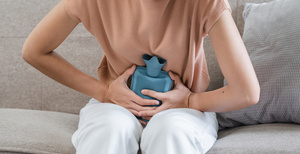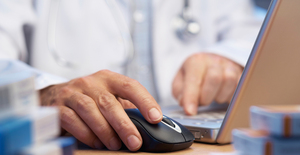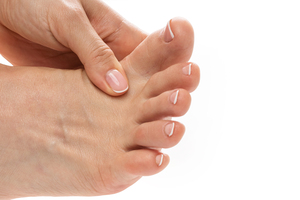Book an STD Test in Holladay, UT
Own a clinic? Add your location.
Help patients book appointments with you on Solv. It's free!
14 instant-book locations

Self-pay pricing
Clear self-pay prices
No more surprise bills. Solv is committed to making getting healthcare as easy as buying groceries at the store, including knowing the price of care upfront.

Self-pay pricing
Clear self-pay prices
No more surprise bills. Solv is committed to making getting healthcare as easy as buying groceries at the store, including knowing the price of care upfront.

Quest Diagnostics
Quest Diagnostics
Self-pay pricing
Clear self-pay prices
No more surprise bills. Solv is committed to making getting healthcare as easy as buying groceries at the store, including knowing the price of care upfront.

Labcorp
Labcorp
Self-pay pricing
Clear self-pay prices
No more surprise bills. Solv is committed to making getting healthcare as easy as buying groceries at the store, including knowing the price of care upfront.

Self-pay pricing
Clear self-pay prices
No more surprise bills. Solv is committed to making getting healthcare as easy as buying groceries at the store, including knowing the price of care upfront.

Self-pay pricing
Clear self-pay prices
No more surprise bills. Solv is committed to making getting healthcare as easy as buying groceries at the store, including knowing the price of care upfront.

Self-pay pricing
Clear self-pay prices
No more surprise bills. Solv is committed to making getting healthcare as easy as buying groceries at the store, including knowing the price of care upfront.

Self-pay pricing
Clear self-pay prices
No more surprise bills. Solv is committed to making getting healthcare as easy as buying groceries at the store, including knowing the price of care upfront.

Self-pay pricing
Clear self-pay prices
No more surprise bills. Solv is committed to making getting healthcare as easy as buying groceries at the store, including knowing the price of care upfront.

Labcorp
Labcorp
Self-pay pricing
Clear self-pay prices
No more surprise bills. Solv is committed to making getting healthcare as easy as buying groceries at the store, including knowing the price of care upfront.

Self-pay pricing
Clear self-pay prices
No more surprise bills. Solv is committed to making getting healthcare as easy as buying groceries at the store, including knowing the price of care upfront.

Quest Diagnostics
Quest Diagnostics
Self-pay pricing
Clear self-pay prices
No more surprise bills. Solv is committed to making getting healthcare as easy as buying groceries at the store, including knowing the price of care upfront.

Self-pay pricing
Clear self-pay prices
No more surprise bills. Solv is committed to making getting healthcare as easy as buying groceries at the store, including knowing the price of care upfront.

Self-pay pricing
Clear self-pay prices
No more surprise bills. Solv is committed to making getting healthcare as easy as buying groceries at the store, including knowing the price of care upfront.
Emergency Dental Service
Emergency Dental Service
Olympus Family Medicine
Olympus Family Medicine
Medallus Urgent Care, Holladay
Medallus Urgent Care
Holladay InstaCare, Holladay
Holladay InstaCare
Granger Medical Millcreek
Granger Medical Millcreek
Urgent Care Salt Lake City
Urgent Care Salt Lake City
Own a clinic? Add your location.
Help patients book appointments with you on Solv. It's free!
Overview of STD Testing in Holladay
Who should get tested for STDs?
Everyone who is sexually active should consider regular STD testing as part of their overall health care routine. According to the CDC, certain groups are at a higher risk for STDs and should be tested more frequently. These include sexually active women under 25, men who have sex with men, and anyone who has multiple or new sex partners. It's also important for pregnant women to get tested, as untreated STDs can have serious effects on the baby.
Importance of getting tested
Getting tested for STDs is a crucial part of maintaining your health and the health of your partners. Many STDs are asymptomatic, meaning they show no symptoms, so the only way to know if you have one is to get tested. Early detection and treatment can prevent long-term health problems such as infertility, certain types of cancer, and increased risk of HIV infection. It also helps to prevent the spread of these diseases to others.
STD testing options in Holladay, UT:
Urgent care and walk-in clinics
Urgent care centers and walk-in clinics are a convenient option for STD testing in Holladay. These facilities often offer same-day appointments and extended hours, making it easy to fit testing into your schedule. One such location is Medallus Urgent Care, located at 3934 S 2300 E, Holladay, UT 84124.
Primary care providers
Your primary care provider is another good option for STD testing. They can provide you with a comprehensive sexual health check-up and can also provide treatment or referrals if needed.
Free STD testing and community health centers
For those without insurance or who can't afford the cost of testing, there are free STD testing options available at community health centers. These centers often provide testing on a sliding fee scale based on income.
At-home testing
At-home STD testing kits are another option. These kits can be ordered online and include everything you need to collect a sample and send it back to a lab for testing. Results are typically available online within a few days.
Prevalence of STDs in Holladay
While specific data for Holladay is not readily available, Salt Lake County, where Holladay is located, has seen a steady increase in STD rates over the past few years, according to the CDC. This trend is in line with national data, which shows STD rates are at an all-time high in the United States.
Risk factors related to STDs in Holladay
Risk factors for STDs in Holladay are similar to those in other parts of the country. These include being sexually active, having multiple sex partners, not using condoms consistently or correctly, and having a history of STDs. Other factors that may contribute to the prevalence of STDs in Holladay include a lack of sexual health education and limited access to healthcare services. However, it's important to note that anyone who is sexually active is at risk for STDs, regardless of their age, gender, race, or socioeconomic status.
Remember, you can book same-day and next-day testing appointments at nearby urgent care centers and medical laboratories through Solv’s website and mobile app. There are 161 nearby locations to get tested at, making it easy to find a convenient option for you.
Solv has strict sourcing guidelines and relies on peer-reviewed studies, academic research institutions, and medical associations. We avoid using tertiary references.
STD Testing FAQs
Where should I get an STD test in Holladay?
In a doctor's office, a health clinic, or an urgent care center, you can get an STD test. If you're experiencing symptoms, it's best to visit a doctor's office, where they can also treat you or issue you a prescription. While some Holladay clinics and urgent care centers allow walk-in appointments, it's advisable to make an appointment ahead of time to prevent excessive waits.
How long does it take to get STD test results?
Various testing are required for various STDs. Depending on the type of STD test you took, you may receive your results in two to ten days. Some outcomes may be immediately available. Your doctor may be able to diagnose an STD through a physical examination. In some cases, your doctor's office may only contact you if your test results are positive.
How much does an STD test cost in Holladay?
The cost of STD testing is governed by several factors, including where you are tested, the type of test you need, and if you have health insurance. Some Holladay clinics may offer free testing or testing on a sliding scale based on your income. Because of the cost, don't put off obtaining an STD test. With your doctor's office, discuss the cost and payment choices. Delaying STD treatment may have catastrophic implications.
Does insurance cover STD testing in Holladay?
The cost of STD testing is governed by a number of factors, including the location of the test, the type of test required, and whether or not you have health insurance. Some clinics may provide free or sliding-scale testing, depending on your income. Don't let the expense of an STD test deter you from getting one. With your doctor's office, discuss the price and payment choices. Delaying STD treatment could have catastrophic ramifications.
How do they test for STDs in Holladay?
There are around 20 different forms of STDs, each with its own set of diagnostic tests. No single test exists that can detect all types of STDs. Your doctor can help you figure out which tests you'll need. In STD testing, a blood sample or a urine sample may be used. Your doctor may also take a swab from the inside of your cheek, your vaginal area, or another potentially infected place.
What STDs can be detected by a blood test?
Blood tests are used to diagnose hepatitis B, hepatitis C, herpes, HIV, and syphilis. In a laboratory, a technician examines a blood sample for antibodies that the body has produced in reaction to disease. The virus's DNA can also be detected by several blood tests. Remember that if you've recently been exposed to an STD and your body hasn't yet produced antibodies, you could test negative even if you have the disease.
Can I get a same-day appointment for STD testing in Holladay?
Many Holladay, UT urgent care providers offer same-day and next-day appointments, which you may book through Solv. To make healthcare more accessible to everyone, we collaborate with thousands of top-rated local providers. Our physician partners understand that waiting days, if not weeks, for an appointment isn't always the best option, and they share our commitment to simple, accessible health care.
How can I book an STD test on Solv?
To find a healthcare practitioner in your area, simply enter your location and search for "STD test" on our website. A list of providers and available appointments can be found on the following page. Choose the most convenient time and location for you. Make it clear that you've come for STD testing.
How long does an STD test take in Holladay?
If you have a specific STD, inform your doctor so that the necessary test can be scheduled. Otherwise, they'll help you figure out which tests you'll need. The nurse or doctor simply needs a few minutes to get a blood sample, a urine sample, or a swab from the probable infection site.
Can I test myself for STDs at home?
Although there are several STD home tests available, not all of them are accurate. The accuracy of any STD test is determined by the quality of the sample taken. For home STD kits, a blood sample, a urine sample, or both are frequently required. Because doctors and nurses have more experience collecting samples, traditional in-office STD testing is the most accurate.
Related Searches
Ear Wax Removal in Holladay
Sports Physicals in Holladay
A1C Test in Holladay
Allergy Testing in Holladay
CMP Test in Holladay
Diabetes Test in Holladay
Diagnostic Test in Holladay
Glucose Test in Holladay
H Pylori Test in Holladay
Hepatitis test in Holladay
Lab Tests in Holladay
Mono Test in Holladay
Pregnancy Test in Holladay
Pulmonary Function Test in Holladay
RSV Test in Holladay
STD Testing in Holladay
Strep Test in Holladay
TB Test in Holladay
Thyroid Test in Holladay
Vitamin D Test in Holladay
Aetna Urgent Care
Blue Cross Blue Shield Urgent Care
Cigna Urgent Care
COVID-19
Flu
United Health Urgent Care
» All services in HolladayFind STD testing
Nearby cities
Everyday Healthcare, Simplified
Expert advice to help you live your best life


![In the Nurse's Office: Common Sicknesses in Schools [Infographic]](https://ucl-cdn-prod.thirdparty.solvhealth.com/dir/media/W1siZiIsIjIwMTMvMDgvMDkvMjJfMjVfMzZfMzU1X2NvbW1vbl9pbGxuZXNzZXNfaW5mb2dyYXBocGljLnBuZyJdLFsicCIsInRodW1iIiwiMzAweCJdXQ?sha=ca40956cd157189e)




